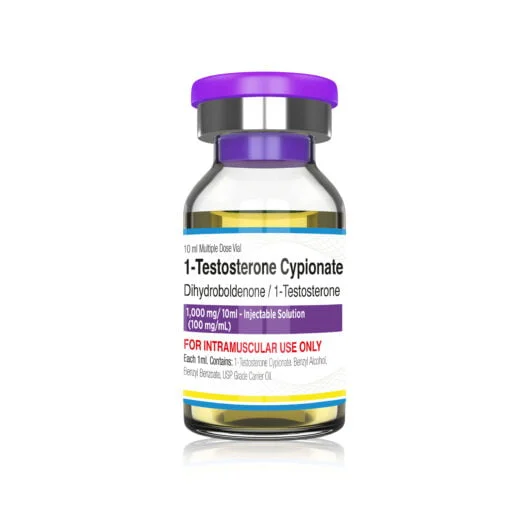Can Testosterone Expire? Shelf Life, Storage, and Safety Explained
Can Testosterone Expire? Understanding Testosterone Shelf Life and Safety
Testosterone, a vital hormone in both men and women, plays an essential role in various bodily functions, including muscle growth, bone density, and overall vitality. For individuals using testosterone replacement therapy (TRT) or other forms of testosterone for medical and performance-enhancing purposes, the question of whether testosterone can expire is a common concern. In this article, we’ll delve into the shelf life of testosterone, the factors that influence its potency, and how to store it correctly to ensure maximum effectiveness.
What is Testosterone?
Testosterone is a steroid hormone that plays a crucial role in male health by regulating libido, energy levels, muscle mass, and bone density. Doctors use it to treat testosterone deficiencies through replacement therapy, typically in the form of injections, topical gels, or patches. Athletes or those aiming to enhance their physical appearance may also use testosterone, which is available in forms such as anabolic steroids or testosterone boosters.
Does Testosterone Expire?
Yes, testosterone can expire, just like most pharmaceutical products. Every medication, including testosterone, has an expiration date printed on its packaging. This date indicates the last day the manufacturer guarantees the medication’s safety and efficacy.
However, passing the expiration date does not automatically mean that testosterone becomes unsafe. The expiration date marks the point when the medication may begin to lose potency or effectiveness, but it does not necessarily mean it becomes harmful immediately after that date.
How Long Does Testosterone Last?
The shelf life of testosterone depends on several factors, including the form it takes (injection, gel, etc.), the conditions in which it is stored, and the packaging.
- Injectable Testosterone: Testosterone injections, like Testosterone Cypionate or Testosterone Enanthate, typically have a shelf life of around 1 to 3 years from the date of manufacture, provided they are stored correctly.
- Topical Testosterone (Gels, Creams): Testosterone gels or creams can also last up to 2 years when stored properly. However, they might lose their effectiveness sooner than injectable forms.
- Testosterone in Oral Form: Oral testosterone forms are less common due to potential liver toxicity, but they typically have a shelf life of 1 to 2 years as well.
What Affects Testosterone’s Expiration?
Several factors influence the shelf life of testosterone and whether it will still be effective past its expiration date:
- Storage Conditions:
- Temperature: Testosterone should be stored in a cool, dry place away from direct sunlight or heat. Extreme temperatures can affect the hormone’s chemical composition and cause it to degrade more quickly.
- Humidity: Moisture can degrade the product, so it’s crucial to keep the container sealed and stored in a dry environment.
- Freezing: Testosterone should never be frozen, as freezing can destroy the hormone’s integrity, making it less effective.
- Packaging Integrity:
- Sealed and unopened packaging helps maintain testosterone’s potency for the full length of its shelf life. Once the seal is broken, exposure to air and contaminants can affect the product’s stability.
- Formulation:
- Sterile Injectable Formulations: Compared to creams or gels, injectable testosterone is less prone to degradation from environmental factors. However, like all medications, it should not be used beyond its expiration date for maximum effectiveness.
Signs of Expired Testosterone
If you are unsure whether your testosterone is still good to use, here are a few signs that it may have expired or degraded:
- Changes in Appearance: Injectable testosterone should be clear and free from particles. If you notice any cloudiness, discolouration, or particles, it’s best to discard the medication.
- Odour: A strange or unusual odour can indicate that the testosterone has broken down and is no longer effective.
- Inconsistent Results: If you’ve been on a consistent testosterone regimen and suddenly notice a decrease in the effectiveness of the medication, it could be due to expired testosterone.
- Changes in Consistency (for Gels): If you’re using testosterone gel or cream and notice a significant change in its consistency (like drying out, clumping, or separating), it might no longer be viable for use.
Is Expired Testosterone Dangerous?
Expired testosterone is unlikely to cause harm immediately, but using it after the expiration date is not recommended. The main risk is a reduction in efficacy—your body may not receive the full benefits of the hormone, which can affect your therapy or performance goals.
Some older medications may become harmful depending on the formulation, though this is less common with testosterone. If you’re unsure about the safety of using expired testosterone, consult with a healthcare professional or pharmacist.
How to Properly Store Testosterone
To maximize the shelf life and effectiveness of testosterone, follow these storage tips:
- Store at Room Temperature: Keep testosterone at room temperature (around 68-77°F or 20-25°C). Avoid storing it in areas that experience extreme heat or cold.
- Keep It Sealed: Always store testosterone in its original packaging and keep the seal intact until use.
- Avoid Humidity: Store testosterone in a dry place. Bathrooms, for example, are generally not ideal due to high humidity.
- Do Not Freeze: Keep testosterone away from freezing conditions. If the medication freezes, dispose of it properly.
Leave a comment